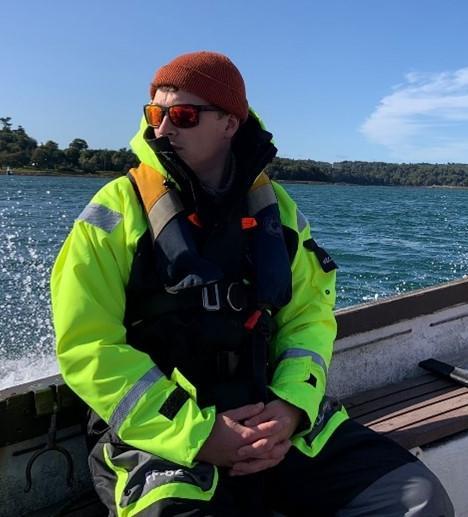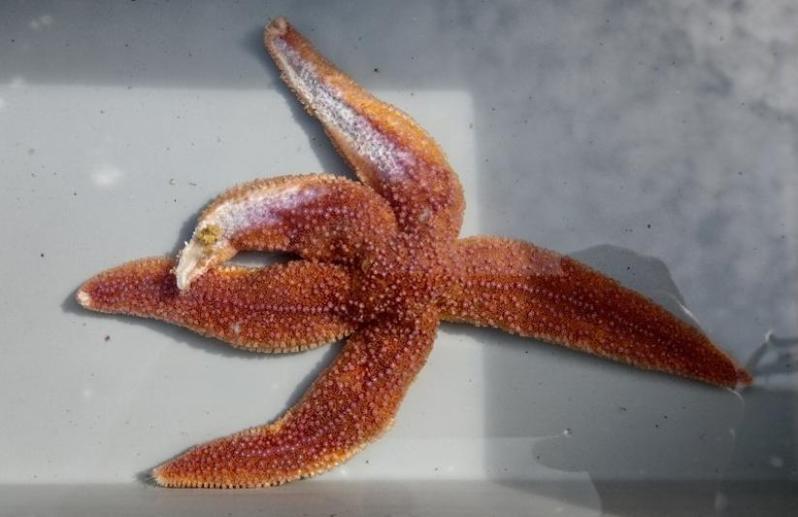Ecological Interactions In Sea Stars

My research interests concern ecological interactions between predators and prey in the marine environment. In particular, my focus is on the role of non-consumptive effects; ways in which predators cause changes in prey populations that may be developmental, morphological, or behavioural.
To explore this aspect of predator-prey interactions, I am investigating the foraging behaviours of sea stars and the anti-predator behaviour of a basal prey species, the blue mussel. Sea stars are important predators in benthic communities, and many are considered as keystone species responsible for the regulation of ecosystem stability. Additionally, the commercial and ecological importance of mussel beds means that they are an important provider of ecosystem services. My project therefore aims to quantify non-consumptive effects cascading from predators to prey - an interaction which may be consequential for ecosystem service provision.
My QUB Pure profile
In addition to my research on the ecology of sea stars and their prey, I also investigate the phenomenon known as sea star wasting disease (SSWD). This is a poorly understood suite of signs ranging from abnormal posture and epidermal lesions, and progressing to complete body disintegration and death. The presence of SSWD in the Northeast Atlantic has now been documented, which may have further downstream consequences for benthic communities.
If you have noticed any signs of SSWD please get in contact via our email: sswd@qub.ac.uk
The first records of sea star wasting disease in Crossaster papposus in Europe